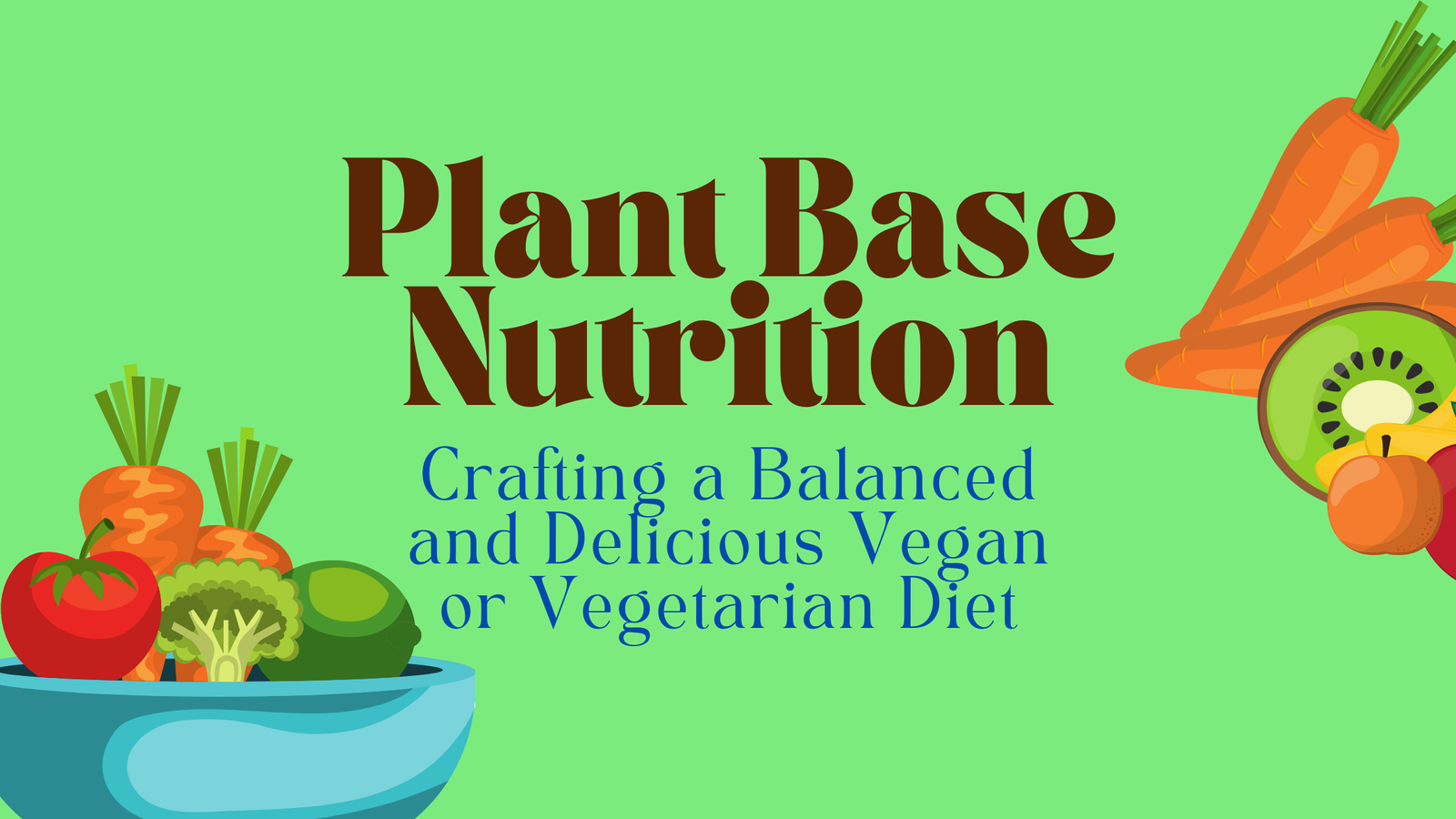Plant-Based Nutrition: Crafting a Balanced and Delicious Vegan or Vegetarian Diet: In recent years, there has been a growing interest in plant-based nutrition as people explore healthier and more sustainable dietary choices. Whether you’re a committed vegan or a flexitarian looking to incorporate more plant-based meals into your diet, crafting a balanced and delicious eating plan is key to ensuring you get the nutrients your body needs.
Understanding the Basics:
A plant-based diet focuses on whole, minimally processed foods derived from plants. This includes fruits, vegetables, legumes, nuts, seeds, and whole grains. Such a diet can provide essential nutrients like fibre, vitamins, minerals, and antioxidants while often being lower in saturated fats.
Building a Balanced Plate:
To create a balanced plant-based plate, aim for a variety of colours and textures. Include a rainbow of fruits and vegetables to ensure you get a broad range of vitamins and minerals. Incorporate protein sources such as beans, lentils, tofu, and tempeh to meet your body’s protein requirements. Whole grains like quinoa, brown rice, and oats can provide energy and essential nutrients.
Essential Nutrients:
While a well-rounded plant-based diet can meet most nutritional needs, there are a few nutrients that need special attention. Vitamin B12, commonly found in animal products, may require supplementation. Omega-3 fatty acids can be obtained from sources like flaxseeds, chia seeds, and walnuts. Iron-rich foods such as lentils, beans, and dark leafy greens can support optimal iron levels.
Flavourful and Creative Cooking:
One misconception about plant-based diets is that they lack flavour or variety. On the contrary, plant-based cooking offers a world of culinary possibilities. Experiment with herbs, spices, and flavourful sauces to enhance the taste of your meals. Get creative with plant-based proteins, and try different cooking methods like roasting, sautéing, or grilling for diverse textures and flavours.
Meal Planning and Preparation:
Planning your meals in advance is a key aspect of maintaining a successful plant-based diet. Ensure a mix of protein, carbohydrates, and healthy fats in each meal. Preparing ingredients ahead of time can save you effort during busy days. Consider batch cooking staples like grains, beans, and roasted vegetables to assemble quick and nourishing meals.
Exploring Plant-Based Alternatives:
With the rising popularity of plant-based eating, there is a plethora of plant-based alternatives available in the market. From plant-based milk to meat substitutes, these options can add variety to your diet. However, it’s essential to read labels and choose products that are minimally processed and fortified with essential nutrients.
Navigating Nutritional Challenges:
While plant-based diets offer numerous health benefits, it’s crucial to address potential nutritional challenges. Calcium, primarily found in dairy products, can be obtained from fortified plant-based milk and juices. Ensure sufficient vitamin D exposure through sunlight or consider supplementation. Zinc, essential for immune function, is found in legumes, seeds, and whole grains but may require attention.
Mindful Eating and Portion Control:
As with any diet, mindful eating and portion control play a pivotal role. Plant-based foods, while nutrient-dense, can vary in caloric density. Be conscious of portion sizes, listen to your body’s hunger and fullness cues, and avoid excessive reliance on processed plant-based snacks.
Incorporating Superfoods:
Superfoods are nutrient-rich foods known for their health benefits. Incorporating these into your plant-based diet can further enhance its nutritional profile. Examples include berries, kale, spinach, chia seeds, and turmeric. These foods are packed with antioxidants, vitamins, and minerals that contribute to overall well-being.
Hydration and Herbal Teas:
Hydration is key to any healthy diet. While water remains the go-to choice, herbal teas can add variety without added sugars. Teas like chamomile, peppermint, and hibiscus not only provide hydration but also contribute to overall wellness.
Community and Support:
Embarking on a plant-based journey can be made more enjoyable and sustainable with the support of a community. Joining local or online groups, sharing recipes, and learning from others’ experiences can provide motivation and help overcome challenges. Building a supportive network can make the transition to plant-based
Conclusion:
Crafting a balanced and delicious plant-based diet is not only achievable but also rewarding for your health and the planet. By embracing a diverse range of plant foods and incorporating creativity into your cooking, you can savour the benefits of a nutritious and satisfying plant-based lifestyle. Whether you’re a seasoned vegan or just beginning your plant-based journey, there’s a world of flavours waiting to be explored in the realm of plant-based nutrition.


3 thoughts on “Plant-Based Nutrition: Crafting a Balanced and Delicious Vegan or Vegetarian Diet”